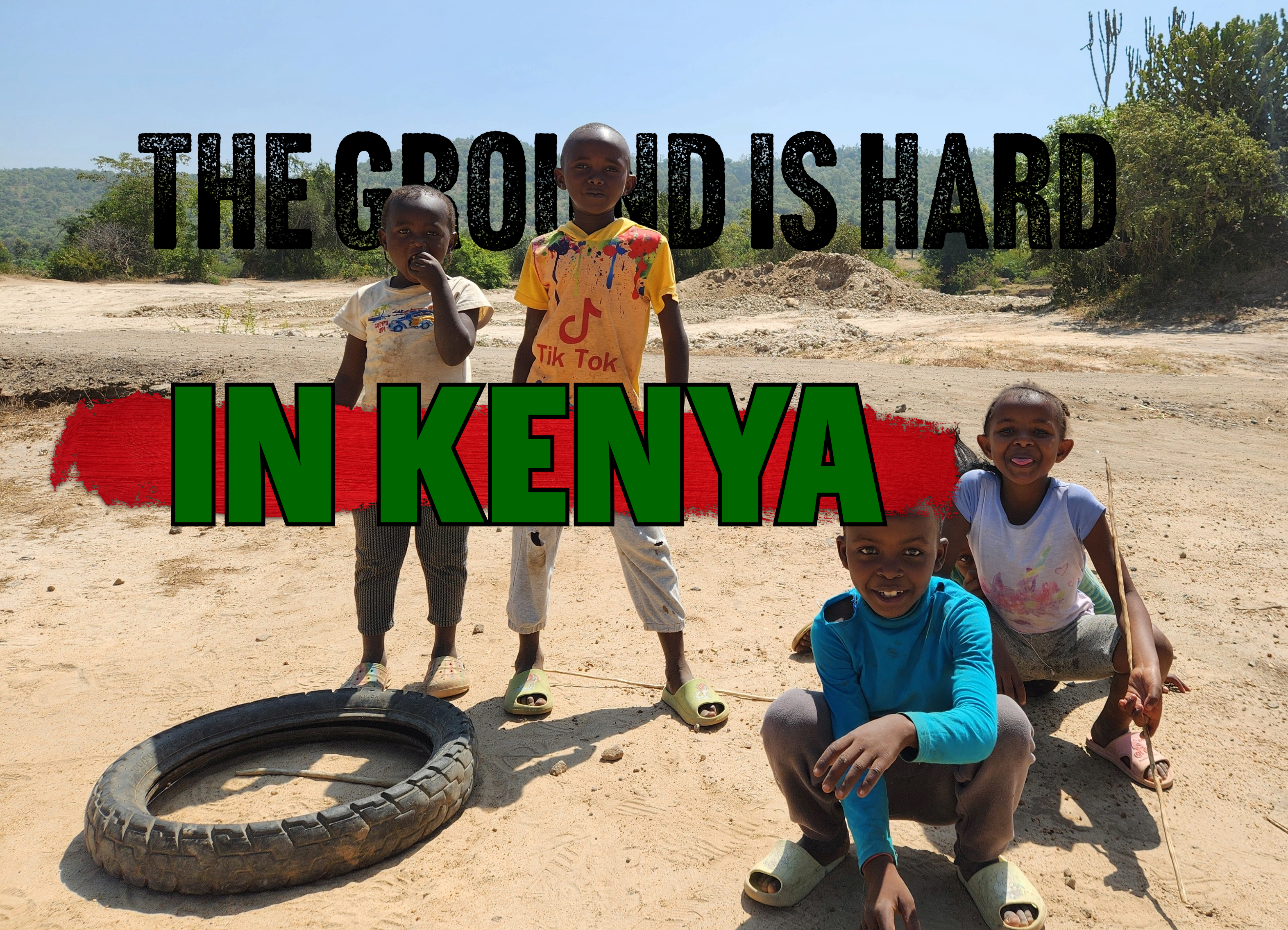
In the middle of February 2025, I boarded a flight along with two other Ohio pastors on our way to Kenya. In the depth of winter, the ground was hard, layered with ice and packed with snow. Our plane departed the Detroit airport, patches of ice along the runway, and not so quickly we arrived at the airport outside of Paris, France. The temperature there was just above freezing, but only just. After a couple hour layover, letting a soda (pop) bottle explode on me, and another not so quick flight, we landed in Nairobi, Kenya, and I took of my sweatshirt, ready to embrace warm outdoor air for the first time in months.
The first night we stayed in the bustling capital and awoke to immediately embark upon a sightseeing safari in the Nairobi National Park. The park is only about 5 miles south of the city’s edge and at 45 square miles in area, Nairobi’s skyscrapers were often the backdrop of the pictures I took there. I have shots of Giraffes, Rhinos, Zebra, and more with apartments, hotels, and office buildings in the background. Even the lions didn’t fail to notice. It's a dichotomy that stirs the imagination. On one hand, Nairobi is a city with a lot of pollution. You can see the smog hanging in the air in the picture below. On the other hand, in an effort to fight back against human encroachment, they put a massive, open fenced (for migration) nature preserve right next to that city.
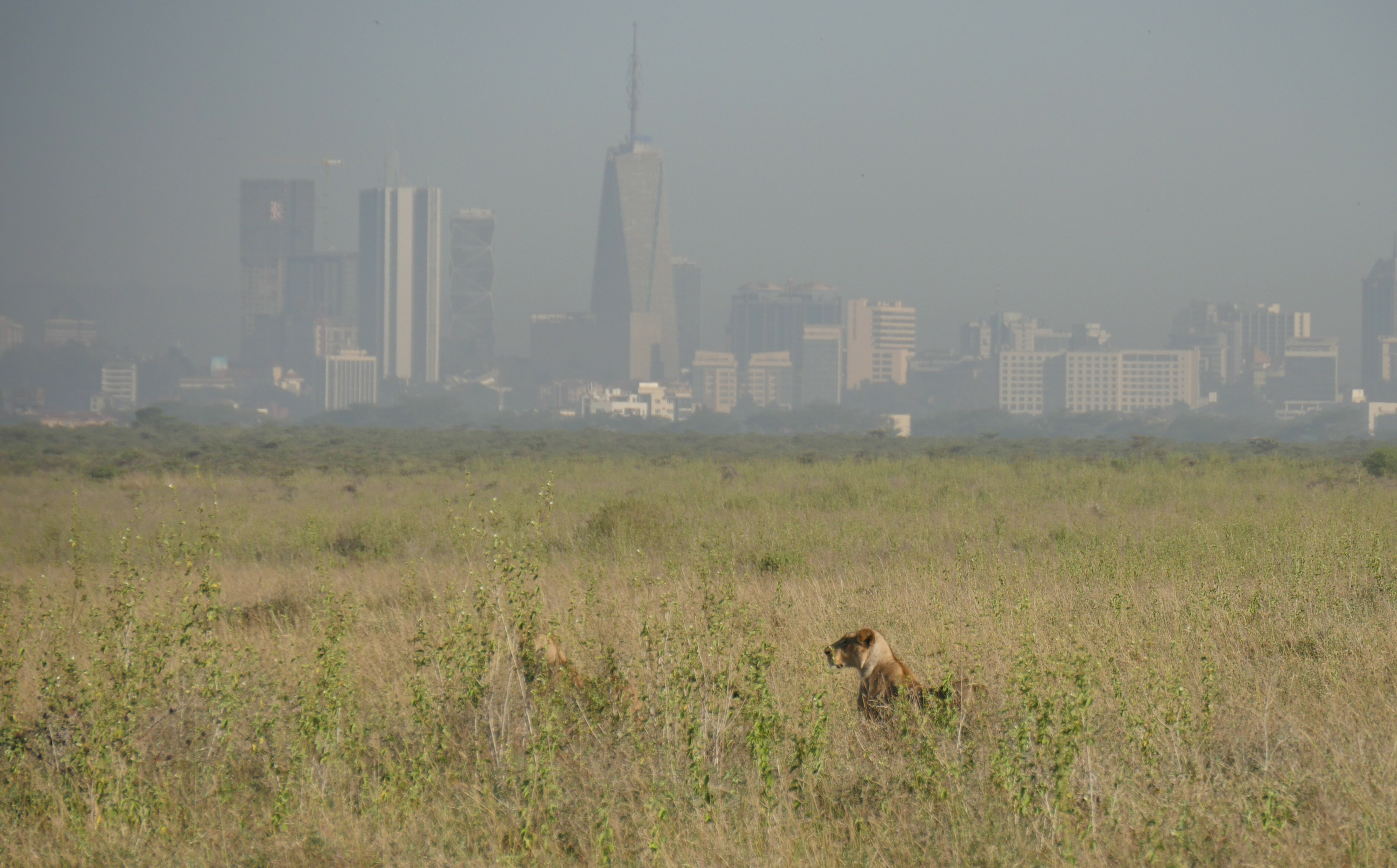
As we departed the National Park, we made our way to Sagana, in the heart of our ministries. Traveling north out of Nairobi, the prevalence of nature, and the overwhelming greenery bombarded the senses of a northerner like me, who had come from a place where green was in hibernation, and had given way to brown, gray, and off white.
It seemed to me that on the doorstep of every Kenyan home was fertile ground, springing up with life. All along the sides of the road, even the highways, people are selling fruits and vegetables that they grow in their own backyards, whether they have a multi-acre farm, or a small patch of land. With three growing seasons, even a small garden in Kenya can produce many mangos, papaya, potatoes, onions, tomatoes, and bananas.
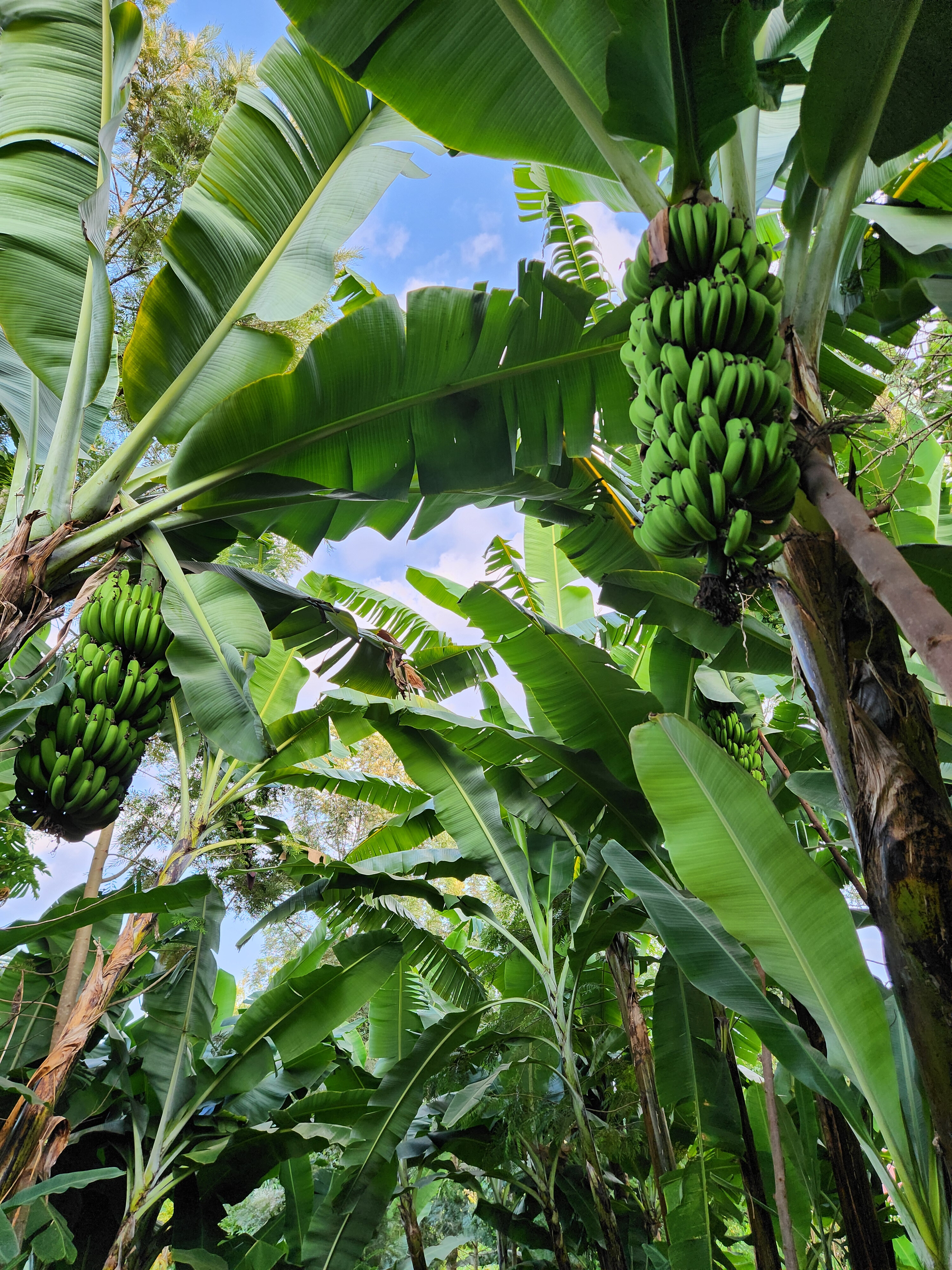
On the following Sunday, I was asked to give a message at our church in Kagio. In attendance were around 40 people who had travelled from a few different churches to worship together. Under a sheet metal roof, on a dirt floor, and with walls that were made of more sheet metal, wooden slats, and in some places just curtains, the people sang, the children danced, and I was humbled by their joy for the Lord.
They dressed in their finest suits and dresses, gave testimonies, and sang solo songs as personal devotions to the Lord. It was a powerful morning and I was deeply moved by the disparity between their lack of church amenities (air conditioning, electricity, a sound system, or coffee and doughnuts!) and their abundance of authentic, joyful, desperate worship. They love the Lord and they love His church. And I'm confident most of our church people would riot after 1 week in a non-climate controlled church.
Our Kenyan pastors have small churches, where 10-30 people regularly attend. When it rains, the metal roofs resound so loudly that you can’t hear the preacher, even if they have audio equipment and speakers, which are sometimes useless given the frequent power outages. But none of that stops the faithful from gathering to praise God.
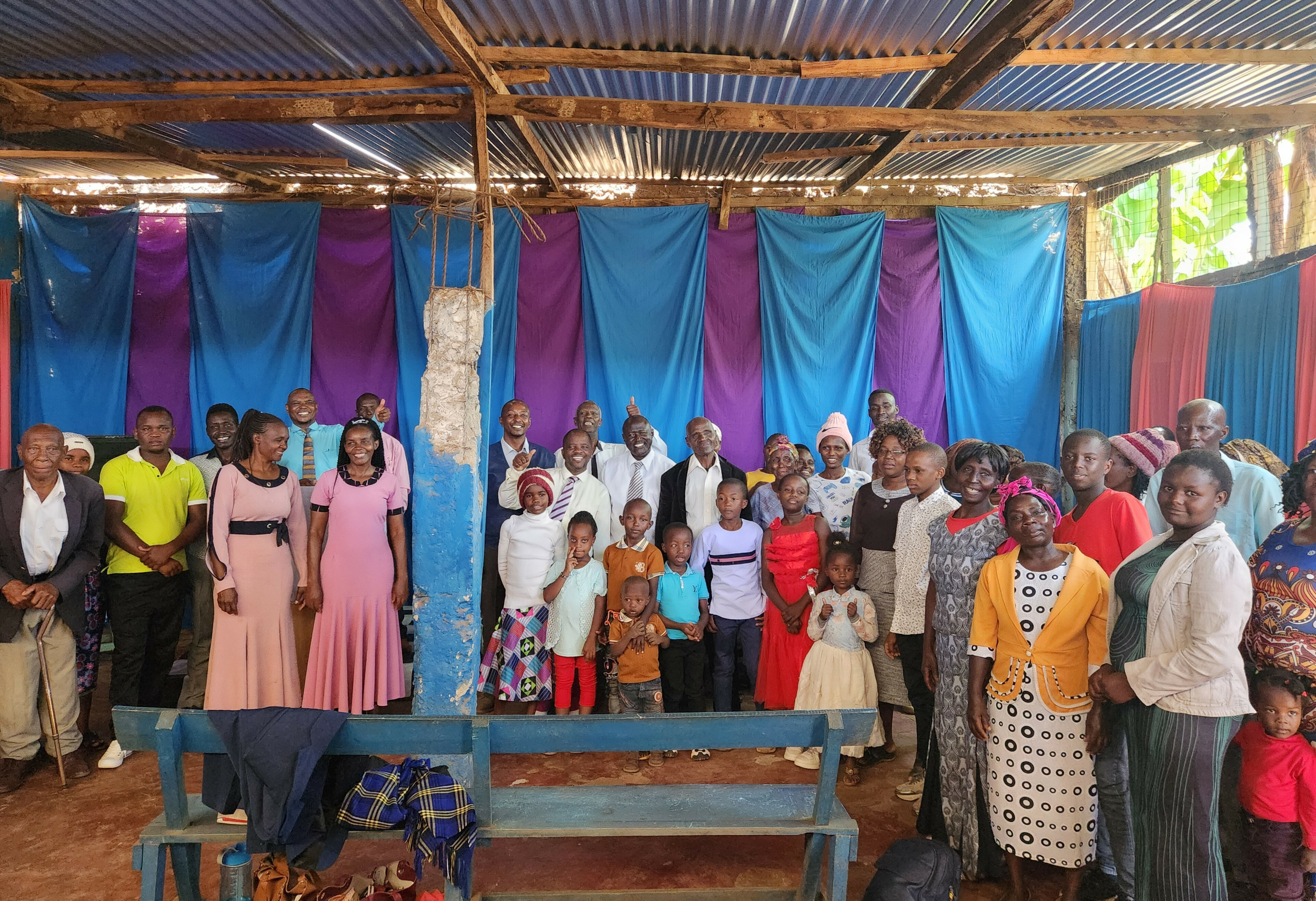 Voice of the Gospel Ministry, Kagio, Kenya
Voice of the Gospel Ministry, Kagio, Kenya
As I've said above, I was feeling quite moved and reinvigorated by their sincerity. In my message on that Sunday, I told them that we (the USA churches) have much to learn from our Kenyan brothers and sisters. Later, while giving some instruction to our Kenya pastors about technology in the church, they interrupted me and told me that despite what I had seen in Kenya, “the ground is hard.”
The pastors described how church people come and go like the wind, captured by fancier ministries with more investment from larger denominations. They told stories about how they had struggled mightily to plant churches in unreached places, only for a larger church to catch wind and build a nicer, bigger building and “steal” all their congregants.
Despite the sincere worship that I experienced, the daily struggle of ministry in Kenya is real. Our pastors are not wealthy. Not by American standards, and not by Kenyan standards. Many of them are bi-vocational, working a farm, or, like Pastor Lydia, a small clothing store during the week, and pastoring her flock along the way. And it’s immeasurably disappointing for our pastors to see churches preaching a prosperity gospel explode with growth.
Doubly hard is how the Kenyan culture now responds to pastors with more and more suspicion. People wounded by inauthentic pastors and churches are hand waving away small ministries trying to do the Lord’s work. The very reason we went as a pastoral team was to help them finish their seminary training so the government recognizes our Kenya pastors as legitimate.
On one of our free days, we went just a little ways south to the Muranga Gorges. Surrounded by farms, forests, and fertile red earth on all sides, the gorges are a veritable desert in the middle of an oasis. Created by water erosion, the gorges are a 20-foot-deep winding pathway through soft sandstone pillars and walls. It’s an amazing spectacle.
But the sand itself doesn’t just disappear because of the erosion. If you go into the gorges, you’ll see evidence of where all the sand went. Broken down wheelbarrows, buckets, and shovels are laying on the eroded pathway. It’s been scooped up and sold as a viable construction material.
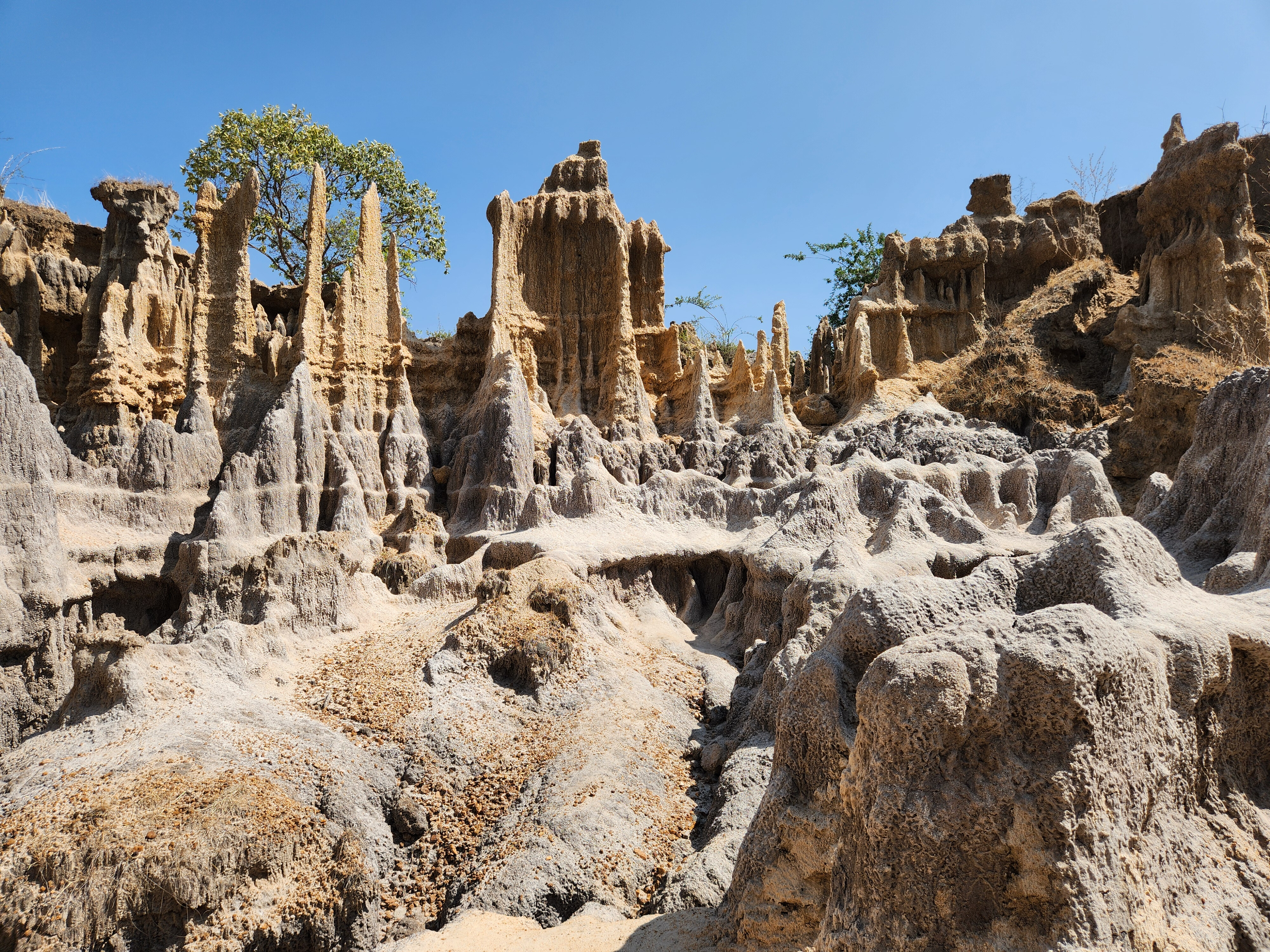
In this area where very little grows, the only way to make a living off the land is to sell it. Now, erosion has helped turn it into a local park, and local people make money as tour guides through the gorges. There is an ingenuity here that is admirable. On the other hand, these people are literally selling their inheritance. The people who live around the gorges have been selling the ground beneath their own homes. That’s not a particularly sustainable business model.
To my eyes, Kenya seemed like a fertile place for growing plants, and for preaching Jesus. But for people living in Kenya, there are patches of hard ground and hard hearts, where very little takes root.
It’s been like that throughout much of Christian history. When missionaries go into foreign lands to spread the gospel, they've encountered great populations of unreached people and they've almost always done so at great personal risk because of hard ground and hard-hearted people. Whether by state violence, violence of the public, or ostracization, the ground all over the world has been hard to till, hard to plant, and hard to harvest.
And that’s not terribly different from the ice hard ground back home in the States, where apathy and lethargy have taken root in Christ’s people.
Especially in the northern hemisphere, but in many countries in Africa and South America too, Christ is a known quantity. Or at least, His name and His people are. In Kenya as in the USA, the question is “who hasn’t heard?” With approximately 85% of people professing to be Christian in the country as of a 2019 Census, Kenya is more Christian than the United States or Europe. A 2021 study put Europe at 76% Christian, and a Pew Research report published in 2025 has US at 62% Christian. When we combine these statistics with what we know about the history of Christianity in Europe and the US, the implication is that more people have heard and turned away, than have never heard. That's a whole different missional paradigm.
As I was writing this, a Christian from India told me that “In India, we see the US as a powerful Christian people. We look up to you. I wish you could see yourselves like that.”
One of the greatest blessings I have in this role is to hear comments like that which have a perspective altering quality. God has given each of us a calling and a context in which to do ministry. Depending on the perspective we bring, the ground can look hard, or fertile. In truth, it’s always both, and our mission stays the same regardless. Because, as Jesus tells us, “The harvest is plentiful, but the workers are few”.
Will you pray with us daily the prayer of Luke 10:2 at 10:02 a.m. each morning? Right now, I’m praying for our Pastors in Kenya that the Lord will provide them with more workers and disciples to till the hard ground, and to constantly encourage them for the good work of ministry.
CGGC eNews—Vol. 19, No. 23




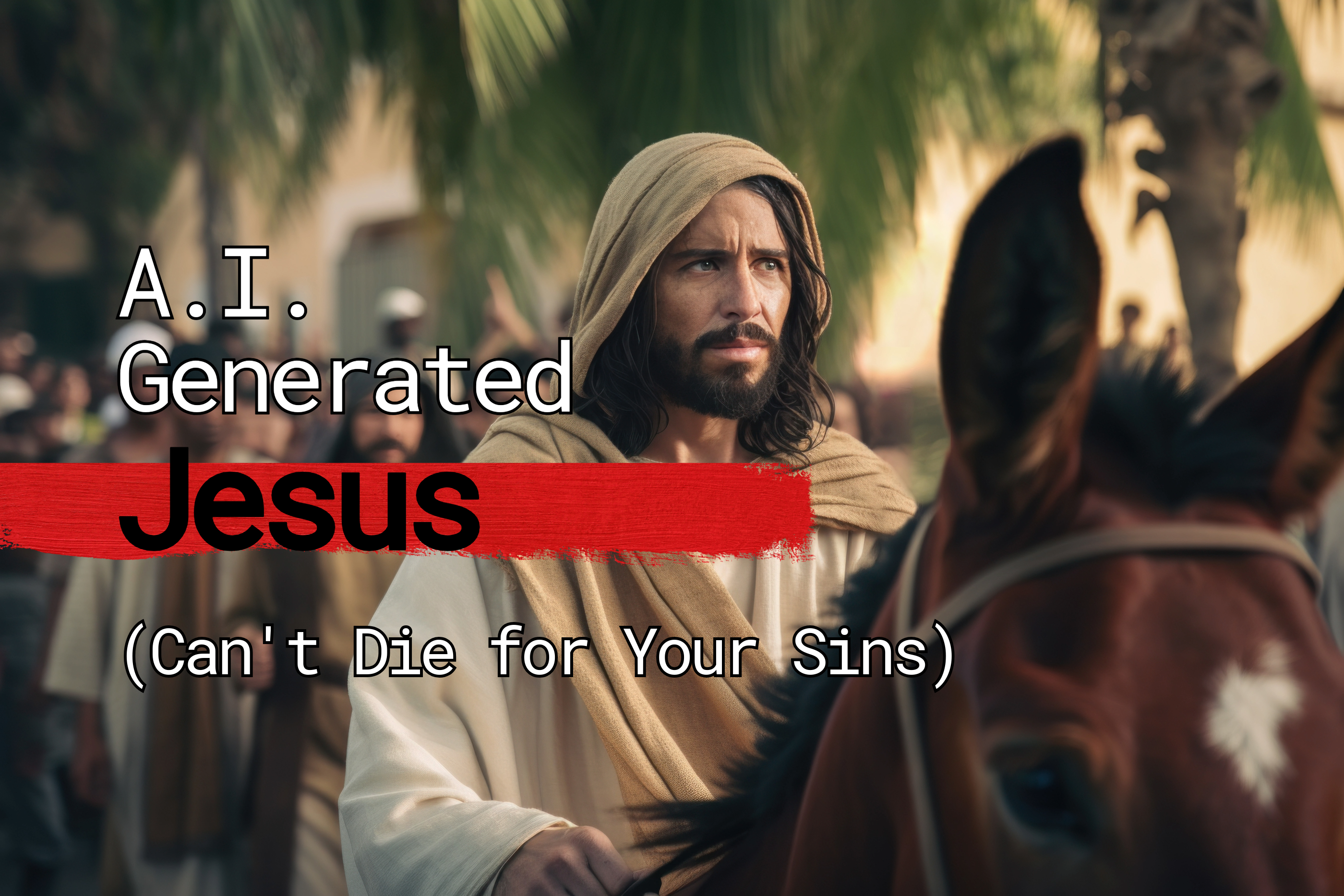
Login To Leave Comment